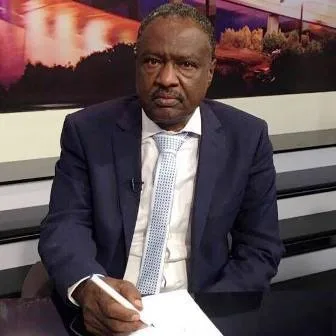Swiss Negotiations

By Rashid Abdul Rahim
Many reports have been circulating from reliable sources that Chairman Burhan met early yesterday morning with the US President’s Senior Advisor for Arab and Middle Eastern Affairs and the US State Department’s Senior Advisor for African Affairs, Masad Boulos.
This meeting comes as the United States has passed the requirements of its decision to impose sanctions on President Burhan.
The importance of the negotiations between the two parties lies in their being conducted amidst the weakness of the rebellion, which seeks to distract people from with futile operations and cowardly attacks in limited areas. This is to keep the sound of the gun loud, falsely claiming its ability to influence action on the ground.
Militarily, the Rapid Support Forces have repeatedly attacked the Darfur capital, El Fasher. Despite repelling all its attacks and it’s losing many soldiers and leaders killed or wounded in the attacks, the rebellion continues to persist and to repeat its attacks, unable to seize control of El Fasher or any other city it has attacked. Multiple airstrikes on Nyala, the undeclared capital of the rebellion, have achieved their goal of halting the flow of international arms and mercenaries via air travel. They have also deprived the rebels of much of their equipment and weapons, disrupting their transport out of the city to their defeated forces, who are crying out for reinforcements. This comes at a time when the capital, Khartoum, has recovered and is awaiting the government’s imminent return.
Politically, the rebellion has so far been unable to establish a founding government and begin its work from Nyala.
Strong negotiations that shift the balance of power usually transcend existing bitterness. This occurred during the era of the Prophet (peace be upon him), throughout Sudan’s history and current reality.
Burhan’s initiation of negotiations, as head of state, and with those below him in rank, is a powerful message to the international community and mediators of the state’s strong faith and unwavering desire to achieve peace and prevent bloodshed. President Al-Burhan, according to sources, emphasized during the meeting his clear rejection of the Rapid Support Forces’ participation in governing Sudan. This is the position of the Sudanese people, who cannot coexist in the future with a rebellion whose brutality and horrific violations against civilians, including women, men, the elderly, and children, have plagued them.
The rebellion is at its weakest point, and despite external military support from several countries, it has been unable to shift the balance of power, with the conspicuous absence of its senior leaders, including Hemeti, Abdel Rahim, and many others.
The prolonged silence of their mouthpieces has not resulted in clear action and progress, which confirms the state of weakness and defeat they are suffering from. This is evident in the absence of a media voice for the rebellion, whether from its prominent figures in this field or from among their loyal political allies.
Also, their external communications are currently having no impact on the international, regional, or bilateral communities surrounding Sudan.
All of this has been reflected in a state of internal unrest, with many demands rejecting the racist domination of the Rizaigat over other components. In light of these developments, whatever the outcome of the US mediation and the supporting Qatari efforts, they will further emphasize Sudan’s strong position, whether the current effort leads to an end to the war or not.
The Sudanese leadership’s efforts in this mediation are significant and commendable, and will certainly achieve many of Sudan’s demands, the validity of its position on war and peace, and its good dealings with the international community.
This, in contrast to exposing and confirming the rebellion’s position and its tendency toward war, destruction, killing, and looting.
Shortlink: https://sudanhorizon.com/?p=6982

